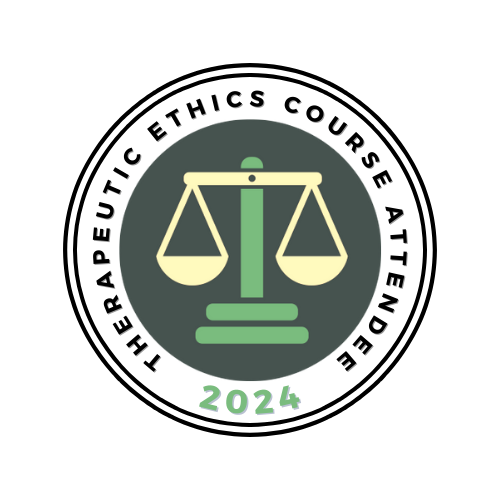Credentials
Finances
Licensed in Israel
- Rachel Imenu 50
- Jerusalem
Bilha Fruchter
 Verified
Verified
Credentials
Clinical Social Worker, Psychotherapist
MSW
Finances
250-350 NIS
None
Sliding Scale
ABOUT THE THERAPIST
I am an accepting, warm, and mindful therapist with nearly 20 years of experience in Israel, Canada, England and the U.S. I work with individuals of all ages and couples who are looking to gain confidence, build introspection, form healthy relationships, cope with anxiety, depression and other mental health issues, and to explore and develop coping strategies to deal with various forms of abuse and trauma.
I combine various therapeutic approaches including psycho-dynamic therapy, family therapy, trauma focused cognitive behavioral therapy, and task-oriented psychotherapy focused on understanding behaviors, choices or struggles that arise. My methods are strength based, goal-oriented, based on my many years of experience and tailored to your personalized circumstances. I am centrally located in Katamon, Jerusalem.
QUALIFICATIONS
MSW
Wurzweiller School of Social Work
2002
Degree
MSWEducation
Wurzweiller School of Social WorkYear of Graduation
2002Years in Practice
22
Registered Social Worker in Israel
29212
ADDITIONAL CREDENTIALS
I have my BSW from McGill University in Montreal, Canada. I also have a post-graduate diploma from the Portman and Tavistock Institute in London, England
DISTANCE COUNSELING
Online Therapy
PRIMARY SPECIALTIES
Abuse
Anxiety / Panic
Depression
Sexual Abuse / Rape
Trauma / Post Traumatic Stress Disorder PTSD
ADDITIONAL SPECIALTIES
Family Issues
Gender Identity Concerns
Life Transitions
Parenting Issues / Training
Self-Esteem
Stress Management
CLIENT FOCUS
Population
Adolescents
Adults
Men
Women
Languages Spoken
Hebrew
English
TREATMENT APPROACH
Attachment-Based Family Therapy (ABFT)Attachment-based family therapy (ABFT) is a form of psychotherapy that focuses on the family's relationships and communication patterns. It is based on the theory that strong and secure attachments between family members are essential for emotional health and well-being. The goal of ABFT is to identify any problems in family relationships, enable family members to become more attuned to each other’s needs, and build a secure bond between them. It also helps family members to practice healthy communication skills, learn effective problem-solving strategies, and build trust within the family.
Family Attachment Narrative TherapyFamily Attachment Narrative Therapy is a form of psychotherapy that focuses on helping individuals to develop secure, healthy attachments to their family members. This type of therapy focuses on the narrative, or stories, that individuals tell about their family relationships and how they view themselves in those relationships. Through this therapeutic process, individuals are encouraged to explore their past experiences with family members, gain a better understanding of their current family dynamics, and develop healthier, more secure attachments to their family members. Therapists using this approach believe that the caregivers are the most crucial component in the healing process, and therefore incorporate caregiver narratives as an important part of the therapeutic process in addressing and repairing the unmet needs of the client. This approach to treatment is primarily designed for children, teens, and young adults who are experiencing issues related to identity, disrupted attachment, and early childhood trauma.
Family Systems TherapyFamily Systems Therapy is an approach to psychotherapy that emphasizes the importance of understanding how the family functions as a whole, and how individual family members interact and affect one another. It focuses on how family dynamics, such as communication patterns, roles, and power dynamics, shape behavior, and how changing these dynamics can lead to positive change. Family Systems Therapy is a collaborative approach, where the therapist works with the family as a whole to identify and address areas of conflict and distress.
Person-Centered Therapy (Rogerian Therapy)Person-centered therapy, or Rogerian therapy, was developed by Carl Rogers in the 1940’s. It is a form of talk therapy that emphasizes the importance of providing psychological safety, unconditional positive regard, and empathic understanding to clients. This type of therapy is based on the belief that individuals have an innate capacity for self-actualization and self-understanding and that the therapist's role is to provide a supportive environment in which this process can take place. Through the use of active listening, open-ended questions, and non-judgmental reflection, the therapist helps the client to explore their thoughts, feelings, and experiences in a safe and accepting environment. By doing so, clients are able to gain insight into their issues, develop a greater understanding of themselves, and work towards personal growth.
Systems Theory / TherapySystems therapy is a type of psychotherapy that focuses on understanding how people's behavior is affected by their relationships with others. This form of therapy is based on the idea that the individual is embedded within a larger system, such as a family unit or work environment, and that changes to that system can cause changes in an individual's behavior. Systems therapy emphasizes the importance of understanding how these systems interact and how they can be changed to improve the individual's mental health. The therapist works to identify patterns of behavior in the system, identify areas of conflict or stress, and help the individuals develop strategies to make changes within the system that will lead to healthier outcomes.
Trauma-Focused Cognitive Behavioral Therapy (TF-CBT)Trauma-Focused Cognitive Behavioral Therapy (TF-CBT) is an evidence-based practice used to help children, adolescents and their parents who have experienced a single or multiple traumatic events. This type of therapy combines cognitive and behavioral strategies to help people process their traumatic experiences, manage their distress, develop coping skills, and restore their sense of safety and well-being. TF-CBT focuses on education and skill-building, creating an environment of safety and trust, and using therapeutic activities to help people understand their responses and control their symptoms. Children are shown how perceptions may be distorted and are given the tools to redesign those perceptions. TF-CBT is a skills-based model, and it requires the child and parent to practice its components in order to be optimally effective. Parents and children are commonly asked to practice skills at home.
SERVICES OFFERED
Individual Therapy
Clinical Supervision
Consultation
Home-based Therapy



 Verified
Verified


